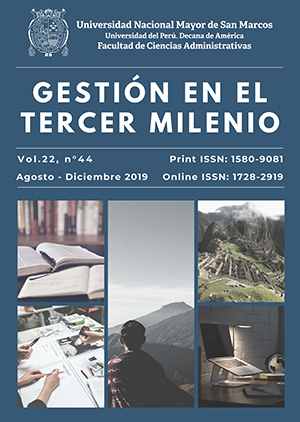The Risk Factors of Anti-Ethical Conduct according to the Model of Donald R. Cressey applied to the National University of San Marcos
DOI:
https://doi.org/10.15381/gtm.v22i44.17302Keywords:
Corruption, Rationalization, CresseyAbstract
Investigations into the corruption of officials highlight that in order to materialize corruption it is necessary that there are three fundamental conditions: opportunity, rationalization and power; Therefore, this article analyzes the causes of unethical behaviors in public service and rationalization in the justification of unethical behaviors. In this sense, it is necessary to regulate and supervise the functional behavior of the public employee in the exercise of their institutional activities, since their work is carried out based on the ethics of the public function that directs all state activity, which are nourished by ethical positions fundamentals that provide consistency and purpose. Therefore, it is essential not only to regulate and denounce but to punish the dishonest conduct of officials. In this sense, we consider that the fundamental problem is related to the antimoral of the corrupt and their attempt to justify their behavior based on rationalization and for this, we use the interpretation model of the Triangle of Fraud by Donald R. Cressey. The predisposition to fraud (corruption) was established based on anonymous surveys applied to mid-level officials of the National University of San Marcos.
Downloads
Published
Issue
Section
License
Copyright (c) 2020 Walter David Ugarte Casafranca, Teresa Victoria Melgar Campos

This work is licensed under a Creative Commons Attribution-NonCommercial-ShareAlike 4.0 International License.
THE AUTHORS RETAIN THEIR RIGHTS:
(a) The authors retain their trademark and patent rights, and also over any process or procedure described in the article.
(b) The authors retain the right to share, copy, distribute, execute and publicly communicate the article published in Gestión en el Tercer Milenio journal (for example, place it in an institutional repository or publish it in a book), with acknowledgment of its initial publication in the Gestión en el Tercer Milenio.
(c) Authors retain the right to make a subsequent publication of their work, to use the article or any part of it (for example: a compilation of their work, lecture notes, thesis, or for a book), provided that they indicate the source. of publication (authors of the work, magazine, volume, number and date).













